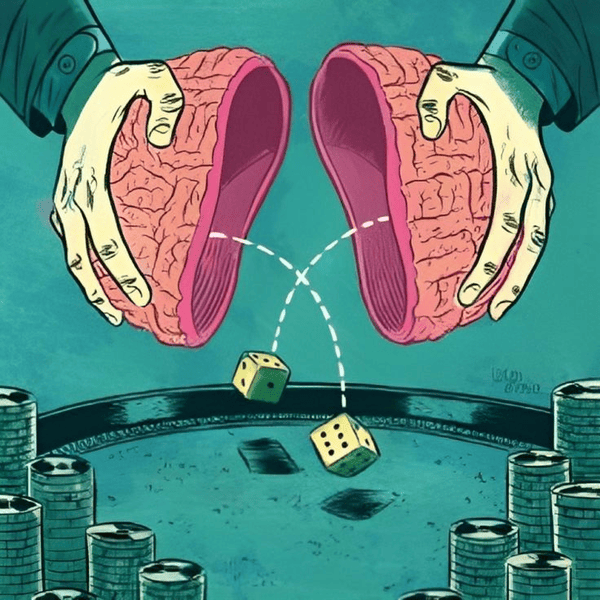Gambling, or gambling, is a phenomenon that attracts millions of people around the world. From casinos to online platforms, gambling is becoming an integral part of modern society. To understand how to attract and retain players, it is important to understand the psychology of people who are addicted to gambling.
In this CPA#1 article, let’s talk about how affiliates can utilize knowledge of player psychology to increase engagement and, consequently, profits.

Psychology of gambling
Gambling is a state in which a person experiences strong emotions associated with risk and uncertainty. In the context of gambling, this feeling is heightened by the possibility of winning, leading to a desire to gamble again and again. The psychology of gambling involves several key aspects:
- Expectation of winning: Players often feel a strong desire to win, even when the odds are against them. This expectation of winning is usually as satisfying as the winning itself.
- Illusion of control: Many people believe they can control the outcome of a game, especially in skill-based games (e.g. poker). This leads them to continue playing, hoping for the best.
- Emotional Connection: Gambling triggers strong emotions, such as the joy of winning or the disappointment of losing. These emotions create an addiction, keeping players coming back for more.
The psychology of gambling also includes several triggers that encourage people to gamble. First is social interaction, meaning that users are often looking to socialize with others. Gambling may well be a way to make new contacts and maintain old connections.
Secondly, the desire for risk, because some people are inherently inclined to take risks. And gambling provides them with an opportunity to test their limits.
Third, casino bonus systems and promotions, such as rewards and incentives, provide an added incentive to play. People like to get something for their actions, and this encourages them to keep playing.
Player Profiles
Different people have different motivations and approaches to gambling. Understanding these profiles will help affiliates more effectively attract and retain players.
1. Recreational players
These players view gambling as a way to have fun. They do not jeopardize their financial resources and play for fun. To attract such players, try using the following strategies:
- Content Creation: Publishing interesting and entertaining content such as blogs, videos and podcasts about gambling will attract the attention of recreational players.
- Social Media: An active social media presence and engagement with your audience will help build a community and attract new players.
2. Competitors
Players who enjoy competition may be drawn to games where they will compete against others. For this purpose, pay attention to:
- Tournaments and competitions: Organizing tournaments with prizes will attract players who like to compete.
- Leaderboards: Creating leaderboards where everyone can see their achievements compared to others will also increase interest.
3. High rollers
These people are willing to risk large amounts of money for the chance of a big win. To attract high rollers, use:
- Exclusive offers: Creating VIP programs and special promotions for high rollers will attract their attention.
- Personalized service: Offering personalized service and support will make the game more attractive for this category of players.
Emotions and gambling

Emotions play a key role in gambling. Players often make decisions based on their feelings rather than logic. Therefore, this is a cool opportunity for affiliates who can use emotional triggers to attract participants. Advertising campaigns that evoke positive emotions such as joy or excitement will be more effective.
Success Stories: Publicizing stories of other participants who have won big will inspire new people to try their hand.
Fear of Loss
Fear of loss is a powerful trigger that encourages people to keep playing. Capitalize on this aspect by offering special promotions that highlight the possibility of missing out on lucrative offers.
- Time-limited offers: Creating time-sensitive promotions that require a quick decision can encourage players to act.
- Deposit bonuses: Offering bonuses upon making a deposit will make the participant feel that they are missing out on an opportunity if they don’t take advantage of the offer.
Use of bonuses and promotions
Welcome bonuses: Offering a first deposit bonus will help attract new players.
- Loyalty bonuses: Loyalty programs that reward players for their activity keep them on the platform.
- Cashback: Offering cashback on losses helps reduce the fear of loss and encourages members to keep playing.
Personalization
- Personalized recommendations: Offering games and promotions based on previous behavior of participants can increase interest.
- Personalized emails: Sending personalized emails with offers and promotions can increase engagement.
Community building
- Forums and Groups: Creating online forums or social media groups where people can discuss their strategies and share their experiences will create a sense of belonging.
- Events and Tournaments: Organizing online events and tournaments will not only help attract new members but also strengthen the bond with existing ones.
Visual elements
Visual elements play an important role in attracting the attention of players. Use bright and attractive images that evoke positive emotions.
- Images of happy players: Showing people who are winning and happy will create a positive perception of gambling.
- Dynamic animations: Using animations in advertisements attracts attention and makes them more memorable.
Messages and slogans
Messages and slogans should be clear and memorable. Use phrases that emphasize the possibility of winning and the fun of gambling.
- “Feel the excitement!”: This slogan evokes the desire to experience the emotions associated with gambling.
- “Don’t miss your chance!”: Creating a sense of urgency can encourage players to act.
Conclusion
Player psychology is a complex and multifaceted topic. Affiliates who use knowledge of player motivations, emotions, and behavior will be able to effectively attract and retain their audience.
Don’t be afraid to experiment and adapt your strategies. Share your experiences in the comments and don’t forget to subscribe to our social networks to stay up to date. More CPA#1 on Telegram. Good luck!




